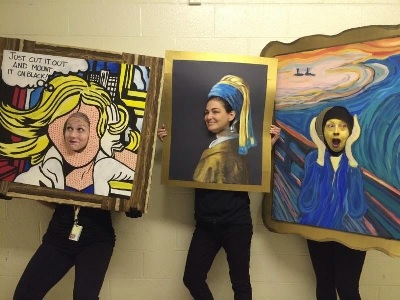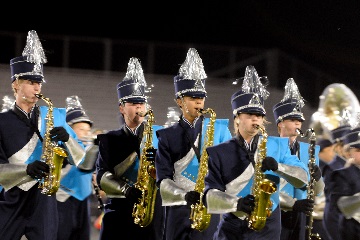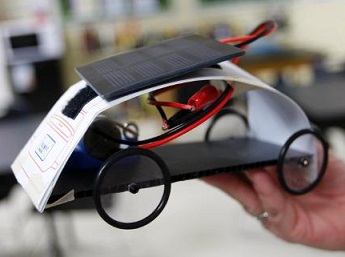I’ve always been one of those people who’s better at sharing a song or playlist with someone than explaining how I feel about something. While I’m not particularly nostalgic in terms of wanting to go back to high school (as a student) or anything, I do miss the golden age of the “mixtape.”
I compiled some serious cassettes in my day, friend. They were completely unappreciated by anyone but myself, but that’s the curse of greatness, I suppose.
Now that I’m well past a half-century old, I don’t do mixtapes anymore. That’s not because I’ve outgrown them. It’s just that people would find it all the wrong kinds of weird. I do find myself still using music as a motivator, however – during exercise (mostly walking these days), cleaning the house, or driving to school in the morning. Honestly, over the past few years, it sometimes takes a few tracks cranked up a bit too loudly just to offset the oppressive sense of madness closing in around us on a daily basis.
And it has fewer calories than drinking. Also, while you may damage your hearing over time, you’re less likely to wake up hungover or naked in the garage with a Chuckie mask on.
In any case, it’s almost time to start a new school year. I’m not dreading it or anything – my need to be intentional about energy and motivation isn’t a reflection on the job or the people involved, exactly. But I suspect I’m not the only one these days who could use a little extra “boost” from time to time in order to remain driven, and focused, and optimistic.
Or at least not crippled by unmitigable despair – that makes it hard to inspire anyone.
With that in mind, I’d like to share my Top Ten List of Motivational Music (Back-to-School Edition). They’re not all specific to school or education or whatever, but for me, they’re at least compatible with the ideals behind what we do. Take it for what it’s worth.
10. These Days (R.E.M.)
This is a live clip, which is fine, but I confess this is one of those rare cases in which the studio version seems more intense and alive. It’s from the very first R.E.M. album I ever owned and still one of my favorites. I feel this one even more deeply as the years go by.
All the people gather, fly to carry each his burden. We are young despite the years – we are concern – we are hope despite the times. All of a sudden, these days – take this joy wherever, wherever you go…
9. Fear of Flying (Farrah)
This is a band I’d have never heard of if it weren’t for – you guessed it – a friend’s mixtape. Granted, it was actually a mixCD, but that doesn’t exactly roll off the tongue, so…
But one day, she’ll get away and see the life she could be living. Make a change, get on a plane because there’s so much she’s been missing. When she gets over the fear of flying…
I’m not one to promise kids they can “be anything they want to be” if they only “believe” or “dream” or whatever. I am 100% certain, however, that most of them have far more potential than they realize if they find the courage to step up and embrace what’s possible.
8. ‘Til the End of the Day (The Verbs)
This is a cover of a classic by the Kinks from the mid-1960s. There’s nothing particularly profound about it – it’s simply a defiant celebration I find compelling. I also like the way it stays faithful to the source material while making it sound fresh and sincere – a handy metaphor for teaching, I suppose.
You know the guy who played drums for the Rolling Stones a year or two ago when Charlie Watts didn’t want to go? This is him and his wife. That means that counting me, and now you, there are roughly four people in the world who’ve heard of The Verbs, and yet here they are throwing all that energy into what they’re doing. I like that little metaphor as well.
Baby, I feel good from the moment I rise – feel good from morning ‘til the end of the day…
7. Blow (Lincoln)
Another obscure band with only a single eponymous album (in 1997) to their name, but a dozen tracks of the best quirky alt-pop ever recorded. I only recently discovered that this band included Danny Weinkauf (bass) and Dan Miller (guitar), who’ve played with They Might Be Giants for something like 25 years now. Honestly, when I was 17 – and still made mix tapes – I would have never missed a connection like that… and we didn’t even have the internet then.
This is one of those tracks that doesn’t ignore the dark futility of it all, but incorporates that despair into the absurdity – thus at least partly negating its sting. It’s a bit counterintuitive for a list like this, but sometimes the dark, cynical stuff mixes well with the joyous – like salt-and-chocolate, rum-and-coke, or Quentin Tarantino.
When the buzzer is broke and you’re given the kiss from your friends who all moved to Los Angeles – the refrigerator’s filled with nothing but ice, some old nail polish, and some orange Slice… When you’re out on a limb, up in a tree, M-I-S-S-I-N-G…
6. Move Into The Light (Southern Avenue)
This band somehow stays relentlessly positive no matter what the subject matter. There’s nothing twisted or subversive hiding behind the optimism here – this is dug in and determined joy.
Sometimes the darkness wraps upon me like an old friend – I mistake the shadow for a comfortable embrace. Sometimes the sadness feels so natural – I get casual – accept and look as factual, when I know that ain’t the case…
They could have held multiple spots on this list with tracks like “Push Now” or “Don’t Give Up” or especially “Keep On”…
Actually, now that I’m thinking about it, I may need a longer list.
5. Stronger / Young and Dumb (Hanson)
I’ve declared these two tracks a tie without them actually taking up more than one slot on the list. (If you don’t like that system, make your own list and you can format it however you like.)
Hanson, for those of you who don’t know, are from Tulsa – my hometown and proverbial stomping grounds for many, many years. After a few big hits (the elderly among you no doubt have “Mmmbop” running through your head already) and a few successful albums in the late 1990s, they faced a dilemma. The record label was willing to continue supporting and promoting them, but it wanted more of a “boy band” flavor to follow up what had already been successful. The lads, on the other hand, were growing up a bit and developing as songwriters and had their own ideas of what kinds of music they wanted to make. It was still very much pop music, much of it positive and fun and bouncy, but they meant it. (They’d meant the early stuff as well, but it turns out when you’re teenagers, your thoughts and feelings can evolve pretty quickly.)
The brothers left their major label and all the security it could provide and started their own independent record label. They recorded the music they wanted to do, and made a documentary about it while having absolutely no idea whether or not they’d be selling real estate or doing burger joint jingles to keep the lights on a year or two down the road.
It’s been 25 years and over a dozen albums since “Mmmbop,” and the Hansons are all grown up with families of their own and maybe a touch of that world-weariness the years can bring – especially when you’ve been used as an easy punchline for several decades by people not creative enough to write their own jokes, let alone their own songs. I’m not the devotee some are (they’re called “Fansons” and they can be… interesting), but I genuinely love this band both for the music they continue to produce and for their story. They are far from perfect (don’t look it up), but anyone who looks corporate music culture in the eye and hands back the check so they’ll be free to do what they think is right is OK with me.
“Stronger” is profound in its simplicity:
But I long to be stronger than this… I long to be Stronger than this… I want to be, I want to be strong.
“Young and Dumb,” on the other hand, reflects the wear and tear of fighting cynicism and despair as the years accumulate:
And when my eyes are clear, I see good intentions are a cheap veneer for every evil justified. I’d rather be young and dumb – surrounded by the possibility. Don’t want to be old and numb – wanna tell myself a lie, wanna tell myself, I’d rather be young and dumb…
4. Light Will Keep Your Heart Beating In The Future (Mike Doughty)
This one is a bit of an enigma given that other than the chorus, it’s not clear that any of it means anything. On the other hand, that makes my commentary a bit more concise. In any case, I played this one rather loudly almost every day on the way to work during one particularly… difficult year. I still turn it up way too loud when it comes on.
3. Opening Up (Waitress, the Musical)
This clip combines numerous elements I wouldn’t normally think of as “my thing.” You’ve got Sara Bareilles, who I love, but who is very much a commercially successful, “name brand” artist (not my usual m.o.). You’ve got stage musicals, for which I actually have quite a soft spot when they’re creatively and musically genuine. You’ve got overtly uplifting-happy-singing-dancing, which I usually hate, even on a countdown of motivational songs. Just to make sure the cheesiness is complete, I opted not to use the audio from the official cast recording and instead found this gem from “Good Morning America” of all nightmares.
And I love this song. This moment. This production. Everything about Waitress: the Musical should annoy the hell out of me, but it brings me joy and optimism and tears of understanding (hey, I’m a crier) – live, on CD, and even some pretty strange YouTube versions.
2. Don’t Feed The Trolls (Jonathan Coulton)
Don’t get me started on Jonathan Coulton. I love his story, his music, his wit, and his willingness to mix intellect, silliness, and sentiment together in ways that simply shouldn’t work but usually do. This one is a live version of a track from 2017’s “Solid State,” but it’s the studio version that most stirs my figurative loins.
And when the bright lights find you, don’t let your heart get lazy. Keep all the worst behind you – that stuff will make you crazy. Don’t read the comments, and don’t feed the trolls… Don’t read the comments, and don’t feed the trolls…
1. The Poisonousness (They Might Be Giants, featuring Robin Goldwasser)
If you haven’t kept up with TMBG since “Particle Man” or “Birdhouse In Your Soul,” you’re seriously missing out. These lads have managed to stay successful enough (largely through their kids’ albums and various theme songs and such) to maintain complete artistic freedom to do whatever their weird little hearts desire. This particular track is from one of their side projects, a concept album based on an obscure comic book series called “The Escape Team” with which I am thoroughly unfamiliar. I thus have no idea what inspired this particular track, but it doesn’t matter – once released into the universe, art is ours to interpret and feel as we see fit, dammit.
I’ve literally played this on repeat up to seven times in a row some days. Loudly.
Can anybody stand up? Dispose of the villainousness? Save us, save us – we can’t break the spell, we can’t leave this hell – Like the end of Lord of the Flies, we can’t tell if we’re going to survive this diet of lies…
(Hand witch) We’re all trapped in this world. (Hand witch) What else can be learned? (Hand witch) These bubbles are disturbing…
Everybody stand up – dispose of the villainousness! This will save us – we can break the spell, we can leave this hell – Like the end of Live and Let Die, I can’t tell just how or just why, but we’ll survive…
Conclusion and Invitation
I’ve found excuses to do music or video lists on this blog before. They’re consistently some of my least-popular posts, plus there’s the added inconvenience that over time some of the videos vanish and so the links no longer work, etc. Music is so personal in terms of its impact and such – perhaps it’s futile to keep putting it out there.
Then again, maybe that’s the whole idea – to keep putting it out there anyway. To believe it matters whether you get warm fuzzies in return or not. (Tell me THAT doesn’t summarize teaching perfectly sometimes.)
But it’s not supposed to only work in one direction – so, what’s your list? That’s not just a formulaic way to wrap up – I really want to know. What song or songs do you put on to bring out the best parts of you? Comment with links, if available, and I promise I’ll listen to every one of them at least once. Heck, I might even like them.

 If you keep up with education news at all, you know all the usual struggles – class sizes, standardized testing, general hostility towards educators by whoever’s looking to score points with conservatives that week, etc. One of the biggies is the ongoing battle to keep the arts in public education. Every time budgets are tight (and they usually are), one of the first things to go is music, or the visual arts, or drama. Even when those classes survive, they’re the first to become “dumping grounds” for students who’ve shown no particular interest in anything but have to be SOMEWHERE. “Hey, anyone can draw a picture or hit a drum, right?”
If you keep up with education news at all, you know all the usual struggles – class sizes, standardized testing, general hostility towards educators by whoever’s looking to score points with conservatives that week, etc. One of the biggies is the ongoing battle to keep the arts in public education. Every time budgets are tight (and they usually are), one of the first things to go is music, or the visual arts, or drama. Even when those classes survive, they’re the first to become “dumping grounds” for students who’ve shown no particular interest in anything but have to be SOMEWHERE. “Hey, anyone can draw a picture or hit a drum, right?” It’s difficult to question things we don’t realize we assume. For example, few of us ponder why we easily trust our family doctor to diagnose pretty much ANY part of our body, internal or external, except our mouth. Our mouth, it seems, is so darned complicated and unique compared to, say, our aortic valve or epidermal sheath, that only SPECIAL DIFFERENT OTHER TYPES OF DOCTORS can even LOOK at this oral outlier.
It’s difficult to question things we don’t realize we assume. For example, few of us ponder why we easily trust our family doctor to diagnose pretty much ANY part of our body, internal or external, except our mouth. Our mouth, it seems, is so darned complicated and unique compared to, say, our aortic valve or epidermal sheath, that only SPECIAL DIFFERENT OTHER TYPES OF DOCTORS can even LOOK at this oral outlier. School is rife with these sorts of assumptions. We simply MUST shuffle students from boxed area to boxed area in slightly-under-an-hour increments. We have roughly the same number of kids in each class, one subject per teacher, and at some point papers of various kinds must be placed in baskets to “grade.” Eventually, all experiences must reduce to a number between 1 – 100 and one of five letters, none of which can be ‘E’ because that’s stupid and wouldn’t tell us anything – unlike, say, ‘C’.
School is rife with these sorts of assumptions. We simply MUST shuffle students from boxed area to boxed area in slightly-under-an-hour increments. We have roughly the same number of kids in each class, one subject per teacher, and at some point papers of various kinds must be placed in baskets to “grade.” Eventually, all experiences must reduce to a number between 1 – 100 and one of five letters, none of which can be ‘E’ because that’s stupid and wouldn’t tell us anything – unlike, say, ‘C’.  And if students behave, and keep the right letters on their weekly personal-reduction-to-a-point-value report, they may be allowed to play sports, or participate in drama, or band, or debate, or cheer, or dance, or some other ‘extra-curricular’.
And if students behave, and keep the right letters on their weekly personal-reduction-to-a-point-value report, they may be allowed to play sports, or participate in drama, or band, or debate, or cheer, or dance, or some other ‘extra-curricular’.  Most of these kids are never going to be professional athletes. But neither are they likely to become professional mathematicians, or chemists, or historians, or novelists. The skills and knowledge gained in each of those realms nevertheless serve a larger good. They help to form a fuller, better, hopefully somewhat happier person.
Most of these kids are never going to be professional athletes. But neither are they likely to become professional mathematicians, or chemists, or historians, or novelists. The skills and knowledge gained in each of those realms nevertheless serve a larger good. They help to form a fuller, better, hopefully somewhat happier person. I sat in yet another #STEM breakfast recently and heard extolled the glories of project-based learning with clear assessments whose rubrics were known in advance and a process built on collaboration – what the rest of us might call ‘band rehearsal’, ‘theater’, ‘competitive debate’, or ‘football practice’.
I sat in yet another #STEM breakfast recently and heard extolled the glories of project-based learning with clear assessments whose rubrics were known in advance and a process built on collaboration – what the rest of us might call ‘band rehearsal’, ‘theater’, ‘competitive debate’, or ‘football practice’.